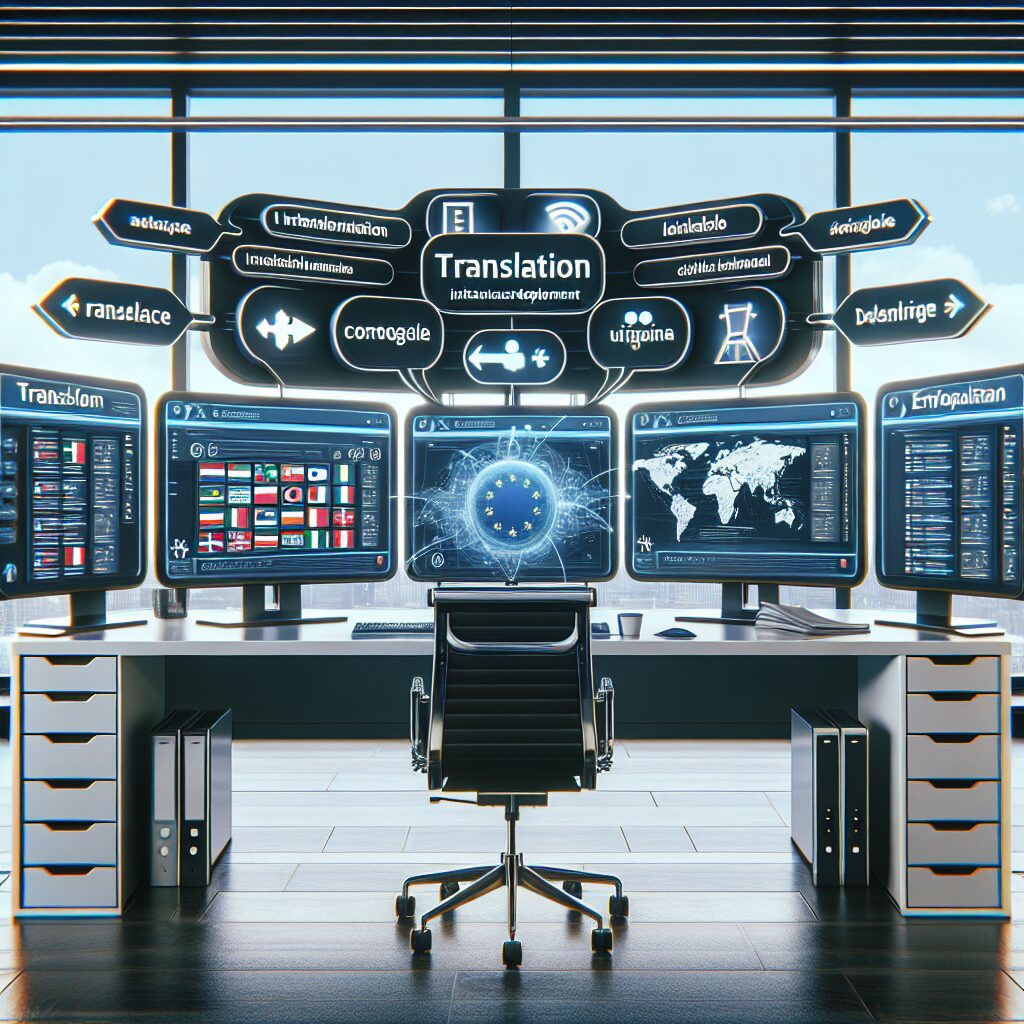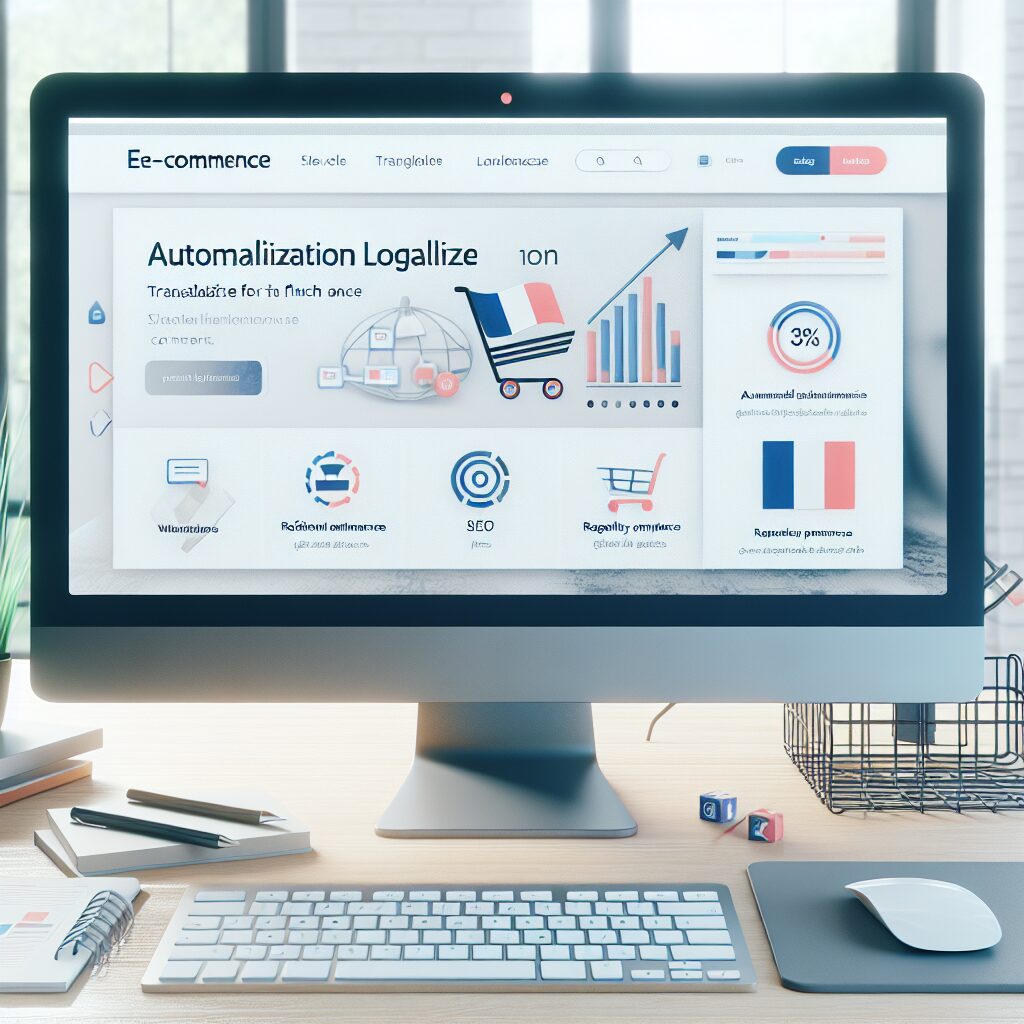About eldris
Clone.Eldris.ai empowers brands to instantly replicate and translate their websites for seamless global expansion. Our automated system delivers SEO-friendly, multilingual clones that launch in days, not months.
In This Article
- Multilingual translation tools are essential for international ecommerce success.
- Consider features like SEO support, integration ease, and language accuracy.
- Clone.Eldris.ai, DeepL, Weglot, and Google Translate each serve distinct needs.
- AI-driven translation allows scalable, adaptive localisation for growth-centric brands.
- ROI varies based on quality, automation, and marketing alignment with each tool.
Why Ecommerce Localization Is Essential for Global Growth
Understanding the Impact of Language on Conversions
In today’s global ecommerce environment, utilising multilingual translation tools is no longer a luxury—it’s a business imperative. Studies show that consumers are far more likely to engage and convert when navigating websites in their native language. According to Common Sense Advisory, over 70% of internet users prefer content in their own language, and over 50% say that information in their language is more important than price. For ecommerce retailers, this means that failing to localise product descriptions, customer support content, or checkout flows can lead to lost revenue and diminished brand trust. Learn more about Ecommerce Localisation Solutions

Overview of Top Multilingual Translation Tools
A Comparison of Features, Accuracy, and Use Cases
There are several multilingual translation tools available in the market, each offering specific advantages in terms of automation, linguistic accuracy, and ecommerce integration. Tools like DeepL, Google Translate, Weglot, and Clone.Eldris.ai provide different levels of sophistication. DeepL is known for high-contextual fluency in major European languages. Google Translate remains comprehensive with over 100 language options, often best suited for early-stage translations. Weglot is designed with ecommerce in mind, offering easy plug-ins for site platforms. Meanwhile, Clone.Eldris.ai leverages adaptive AI to retain brand tone while localising full ecommerce experiences. Choosing the appropriate tool depends largely on the nature of your business, existing tech stack, and the target market languages.
DeepL vs Google Translate vs Weglot vs Clone.Eldris.ai
Tool-by-Tool Analysis for Ecommerce Platforms
Let’s examine four of the most widely used multilingual translation tools:
DeepL
DeepL boasts state-of-the-art AI that renders highly fluent translations, especially between European languages. It continually evolves based on contextual feedback. Its strength lies in long-form text translation, but it lacks plug-and-play ecommerce integrations. Thus, it’s best used via API with a development team.
Google Translate
Google Translate is arguably the most accessible of the tools, with support for over 100 languages. While it offers decent translations, inconsistencies can appear in domain-specific terminology. Its ecommerce utility lies mostly in experimentation or supplementing more robust tools.
Weglot
Weglot specialises in ecommerce. It integrates directly with platforms like Shopify, Wix, and WooCommerce. Most translation occurs via machine learning, supplemented with human edits if desired. Its interface allows marketers to oversee localisation without coding, making it ideal for non-developer teams.
Clone.Eldris.ai
Standing apart is Clone.Eldris.ai, engineered meticulously to help ecommerce brands establish multilingual stores that preserve branding, tone, and SEO structure. Its translation adapts based on engagement metrics, creating a loop of optimisation. Its custom scripts include checkout localisation and structured data tagging, giving it an edge in SEO automation. Trusted review of ecommerce translation tools
How AI Changes the Ecommerce Translation Landscape
From Manual Localization to Scalable Automation
Artificial intelligence, particularly machine learning and neural networks, has significantly transformed multilingual translation tools in recent years. Rather than relying on manual efforts, brands can now deploy AI-powered tools that learn from existing content, user behaviour, and linguistic databases. This progress allows ecommerce businesses to—almost instantly—translate entire catalogues across multiple languages while maintaining an impressive degree of contextual accuracy. Through adaptive translations, these tools improve customer experience by making content feel local rather than formulaic. Moreover, they open up the potential for dynamic, real-time localisation where content adjusts based on location, behaviour, and even cultural context.
Key Evaluation Criteria for Translation Tools
Speed, SEO Capabilities, Language Support, and More
When choosing among various multilingual translation tools, it’s essential to prioritise the right evaluation criteria. Here are several aspects to consider:
- Translation Quality: Evaluating fluency, grammar, spelling, and idiomatic language.
- Speed of Deployment: Look for ease of installation and update across site-wide elements.
- SEO Optimisation: Tools should support multilingual sitemaps, hreflang tags, and meta tag translation.
- Language Range: Ensure support for all target languages, especially RTL scripts like Arabic or less common dialects.
- Maintenance & Scalability: Choose platforms that support real-time syncing and updates.
- Security & Data Storage: GDPR and localisation data policies should be respected.
Selecting a solution that checks all these boxes will not only simplify your global expansion but also ensure technical SEO compliance, a critical factor in foreign language search ranking.
Best Options for Shopify & WooCommerce Stores
Integration Tips and Platform-Specific Guidance
For online merchants using Shopify or WooCommerce, finding multilingual translation tools with native integrations is vital. Shopify users can benefit significantly from Weglot’s one-click installation, which translates product pages, checkout, and collection metadata almost instantly. Meanwhile, WooCommerce merchants often lean toward using plugins with direct WordPress compatibility, such as TranslatePress or the WooCommerce Multilingual extension.
That said, Clone.Eldris.ai is emerging as the superior option for advanced ecommerce localisation. It offers seamless support for both platforms while allowing pre-rendering of translated pages to ensure maximum SEO coverage. Regardless of the tool, always ensure that URL structures are appropriately localised (e.g., /fr/collection vs /collection?lang=fr) to avoid duplicate content issues. Read a related article
SEO Optimization Considerations in Multilingual Stores
How Translation Tools Affect Search Rankings
Among the most overlooked facets of international ecommerce is how multilingual translation tools influence search engine rankings. Properly localised content isn’t just for reader engagement—it strongly impacts organic visibility across global markets. Good tools will automatically generate hreflang tags, translate meta titles and descriptions, and support multilingual sitemaps.
However, not all platforms handle SEO equally. For example, Weglot includes auto-generated hreflang tags, but often places translated content under proxy URLs. DeepL, on the other hand, provides high linguistic accuracy but requires developers to code SEO optimisations manually. Clone.Eldris.ai has built-in structured data replication capabilities, ensuring schema markup and page metadata are accurately translated and indexable. If you want to rank well in Germany, France, or Japan, your tool must go beyond text conversion—it must support full multilingual SEO implementation. How AI is transforming online localisation
Overcoming Ecommerce Translation Challenges
Common Pitfalls and How to Avoid Them
Despite the availability of powerful multilingual translation tools, ecommerce brands often face recurring localisation challenges. Over-reliance on machine translation without human review can lead to awkward phrasing or cultural missteps. Additionally, failing to update translations during inventory changes can result in customer dissatisfaction and logistical errors.
Another critical pain point is inconsistent branding. Many auto-translation tools cannot grasp brand tone or nuance unless optimised. That’s where tools like Clone.Eldris.ai shine—they incorporate tone-of-voice guidelines during translation. Also, managing content in multiple languages means added complexity in customer support, shipping policies, and legal disclaimers. Addressing these across locales ensures compliance and customer satisfaction. Foresight and planning, combined with the right tools, can help overcome these challenges effectively.
Real-World Success Stories Using AI Translation Tools
Case Studies of Global Growth via Automation
Several brands have seen game-changing results from deploying multilingual translation tools. A mid-sized fashion label based in the UK expanded into the German and French markets using Weglot. Within four months, their international revenue rose by 35%, largely credited to fully localised checkout processes that reduced cart abandonment.
Another example includes a Brazilian electronics retailer that used Clone.Eldris.ai to launch in Canadian and Spanish markets. By automatically adjusting product pages and support content based on regional metrics, they boosted average session duration by 60% and saw ROI on translation expenditure in under three months.
Even smaller businesses benefit. A WordPress-based art store reported doubling orders from Sweden after implementing Google Translate combined with manual edits. These real-world examples reinforce that effective localisation can rapidly accelerate global ecommerce growth when paired with the right tools and strategy.
Cost & ROI Behind Translation Tool Investments
What You Get from Different Price Points
Translation tools vary significantly in cost. Free tools like Google Translate can be useful in the early stages but often require manual oversight to ensure professionalism. Mid-range options such as Weglot offer subscription models, typically based on word count and number of languages. These provide good out-of-the-box value, especially for Shopify users.
Premium options, like Clone.Eldris.ai, demand higher upfront investment but often include machine-learning personalisation, ecommerce data integration, and full multilingual SEO coverage. The ROI from these tools comes in many forms: higher conversion rates, decreased bounce rates, better organic reach, and stronger customer retention internationally. Prioritising ROI over initial cost is essential, particularly when entering competitive global markets.
“The right multilingual translation tool doesn’t just translate words—it builds a bridge between your brand and international customers.”
Final Thoughts: Choosing the Right Translation Platform
In the final analysis, the success of ecommerce localisation depends heavily on selecting the right multilingual translation tools. The needs of your brand—whether speed, SEO, or price—will guide which platform makes the most sense. Tools like DeepL prioritise quality, while Weglot focuses on user-friendly deployment. Meanwhile, the comprehensive capabilities of Clone.Eldris.ai make it a powerful solution for serious international growth. Effective localisation enables deeper customer trust, better UX, and long-term competitive advantage. Spend the time to evaluate, test, and adapt. In today’s ecommerce landscape, localisation doesn’t just deliver translations—it drives global momentum.
Great guide on compare-multilingual-translation-tools-ecommerce-expansion – Community Feedback
What are the best translation tools for ecommerce websites?
Top translation tools for ecommerce include DeepL, Google Translate, Weglot, and solutions like Clone.Eldris.ai. Each offers unique features for scalability, speed, and SEO, but choosing the right one will depend on business size, language needs, and integration requirements.
How do AI translation tools benefit ecommerce expansion?
AI translation tools enable faster, more accurate localisation, helping online stores enter new markets swiftly. They reduce costs, automate workflows, support SEO, and maintain consistent branding across multiple languages—all essential for ecommerce growth.
Which factors should I compare when choosing a multilingual translation tool?
Consider translation accuracy, supported languages, SEO features, integration with ecommerce platforms, scalability, automation capability, and compliance. Evaluating these points can help select the most effective solution for your store.










